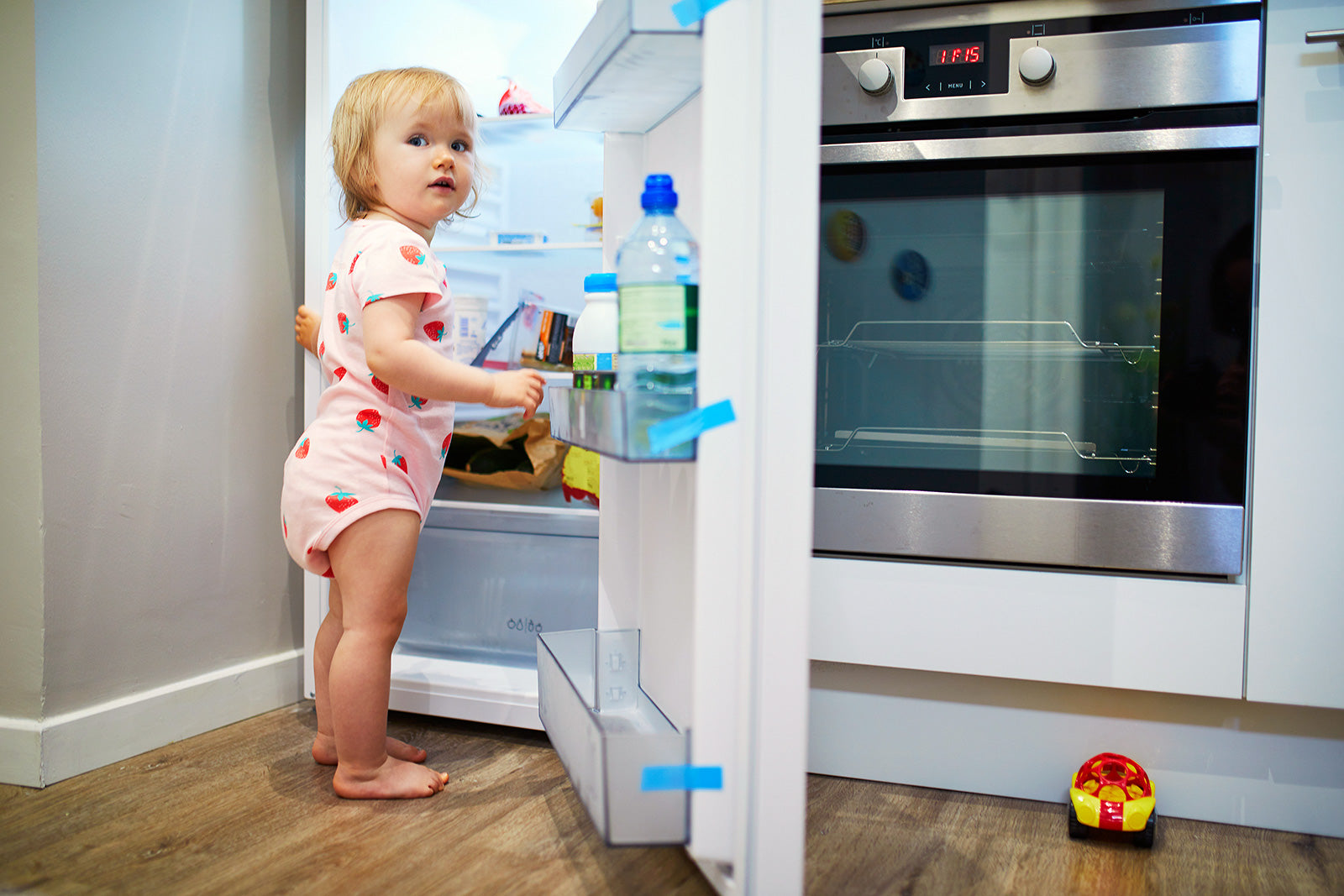Breastfeeding vs. Formula Feeding: Why This Mom Battle Needs To Stop

Since the invention of baby formula in 1865, it seems there has been a battle raging in the breastfeeding vs. formula feeding arena. Conversations around the highly personal decision of how to feed your child became politicized and, to be honest, pretty mean. This battle needs to stop.
At the bökee, we support every parent on their feeding journey, no matter how it looks. We have fed our children in every way possible: breast, bottle (with formula and donor breast milk) as well as through an NG and G-tube. We’re passionate about supporting well-fed, healthy babies, and their parents' mental and emotional health.
Parenting is hard enough without shaming and blaming, so we hope to make life a little easier for you. As the only one-handed bottle preparation accessory, the bökee simplifies feeding time for everyone.
A Quick History of Feeding
Biologically, women have a built-in feeding system for when they give birth. Every mammal does. But that doesn’t mean that feeding your infant always goes according to this plan.

As early as 2000 BC, the practice of wet nursing was relatively widespread throughout the ancient world. Although breastfeeding was the first choice when possible, there were plenty of times that using a wet nurse was necessary. Sometimes the biological mother didn’t produce enough milk, and frequently, the mother didn’t survive childbirth.
In the Roman Empire, women often hired wet nurses intentionally so that they didn’t need to handle their child’s feeding themselves. By the Middle Ages, authorities were frowning upon this practice. However, it continued for many reasons well into the Industrial Revolution.
Throughout these eras, people also fashioned various vessels for feeding their infants. Residue found in crude bottles from ancient times indicates they held animal milk. Technology in the 19th century allowed for safer and cleaner bottle options.
Over time, condensed milk, evaporated milk, and powdered formula arrived on the scene as alternatives to breastfeeding. Advertising campaigns around the world led to a global decline in breastfeeding up to the 1970s. Since the medical community clearly supports breastfeeding as the optimal choice, it is on the rise again.
Breastfeeding Benefits and Challenges

Breastfeeding is what doctors and experts encourage as the preferred feeding method. Organizations such as the World Health Organization (WHO), the American Academy of Pediatrics (AAP), and the American Medical Association (AMA) all recommend breastfeeding as the first choice.
The fact that breastfeeding is free and doesn’t require any special gear is another big reason that parents choose this option. Babies are expensive! So being able to feed your child on-demand without any added cost is a huge benefit.
Research suggests that breastfeeding has significant potential health benefits for babies that include:
- Stronger Immune System
- Fewer Ear Infections
- Fewer Respiratory Infections
- Reduced Risk of Allergies and Asthma
- Lower SIDS Risk
- Fewer Gastrointestinal Issues
Although the benefits are plentiful and clear, breastfeeding isn’t without its challenges. Some babies have a hard time latching on, and the process is painful for many women.
Additionally, breastfeeding can leave some women feeling “chained” to their child or pump all the time. And many parents don’t like having to restrict their diets if needed.
Formula Feeding Benefits and Challenges

The invention of safe formula options was a game-changer for parents around the world. Women who are unable to breastfeed have a different choice now. And given the fact that up to 5% of women do not produce enough milk to meet their child’s nutritional needs, formula is a blessing in those situations.
One of the biggest benefits of formula feeding is that anyone can do it. While breastfeeding must involve the mom, formula allows any caregiver to feed the baby. This flexibility makes it easier for women who need or want to work outside the home. And it can also help fathers bond with their babies over feedings more easily.
The Breastfeeding vs. Formula Feeding Battle
The resurgence of breastfeeding over the past few generations has brought an unfortunate consequence. Moms who choose formula instead of breastfeeding often experience shaming and blaming from other parents and even from their medical providers.
This simply must stop.
Some parents choose to breastfeed exclusively. For other parents, formula feeding is the best choice. And still other families settle on combination feeding that involves breastfeeding, formula feeding, and pumping.

And each family should have the right to decide what works for them without shame or reproach.
Illness, lack of milk production, medical needs, and personal choice are all reasons parents choose formula feeding over breastfeeding. And it shouldn’t be anyone else’s business.
The battle needs to end for everyone’s sake. The ultimate goal is to have a healthy child and family. No family does better because of shame or finger-pointing, and the blame game is likely to lead to anxiety or depression.
In particular, women who experience postpartum depression may have an even harder time with the pressure to nurse their babies. Setting up new moms to feel like failures isn’t the way to help families thrive.
Yes, breast milk provides the best nutrition for babies, and formula has yet to mimic it perfectly. Experts agree on that. But in no way does this fact mean that it’s wrong to formula-feed your child. One thing doesn’t equal the other.

Let’s give moms a freaking break already, right? We’re all making the choices we need for our families. We learn. We try. We fail. We succeed. We do all these things as we try to keep up with the hardest job on earth.
Things to Consider No Matter What You Choose
Regardless of how you feed your child, there are some things to keep in mind to ensure your baby is safe and thriving.
- Pay attention to their diapers. Once your baby is a few days old, you should start seeing about four to six wet diapers and three to five stools per day.
- Watch for weight gain. The pediatrician will check your baby’s weight at each visit to monitor this. In some instances, they may recommend you rent a scale to use at home, too.
- Follow safety protocols. Always be careful when warming bottles to avoid burns and pay attention to expiration dates on formula. If you pump milk to freeze or refrigerate, be sure to follow CDC guidelines.
- You’re doing great! Don’t forget to tell yourself that.
The bökee Can Make Things Easier
Our products don’t care whether you breastfeed or use formula for your baby. But they do make your job simpler. The bökee allows you and other caregivers to prep bottles with one hand.
If you’ve ever held a crying baby while trying to get a bottle ready, you know how hard it is. And if you’re breastfeeding, or plan to, the bökee will reduce the inevitable spills. Because trust me. You will cry over spilled breast milk!
We invite you to try the bökee for yourself or a loved one. Anything that gives parents a break or makes life a little easier is a win in our book. Pick your favorite today.





